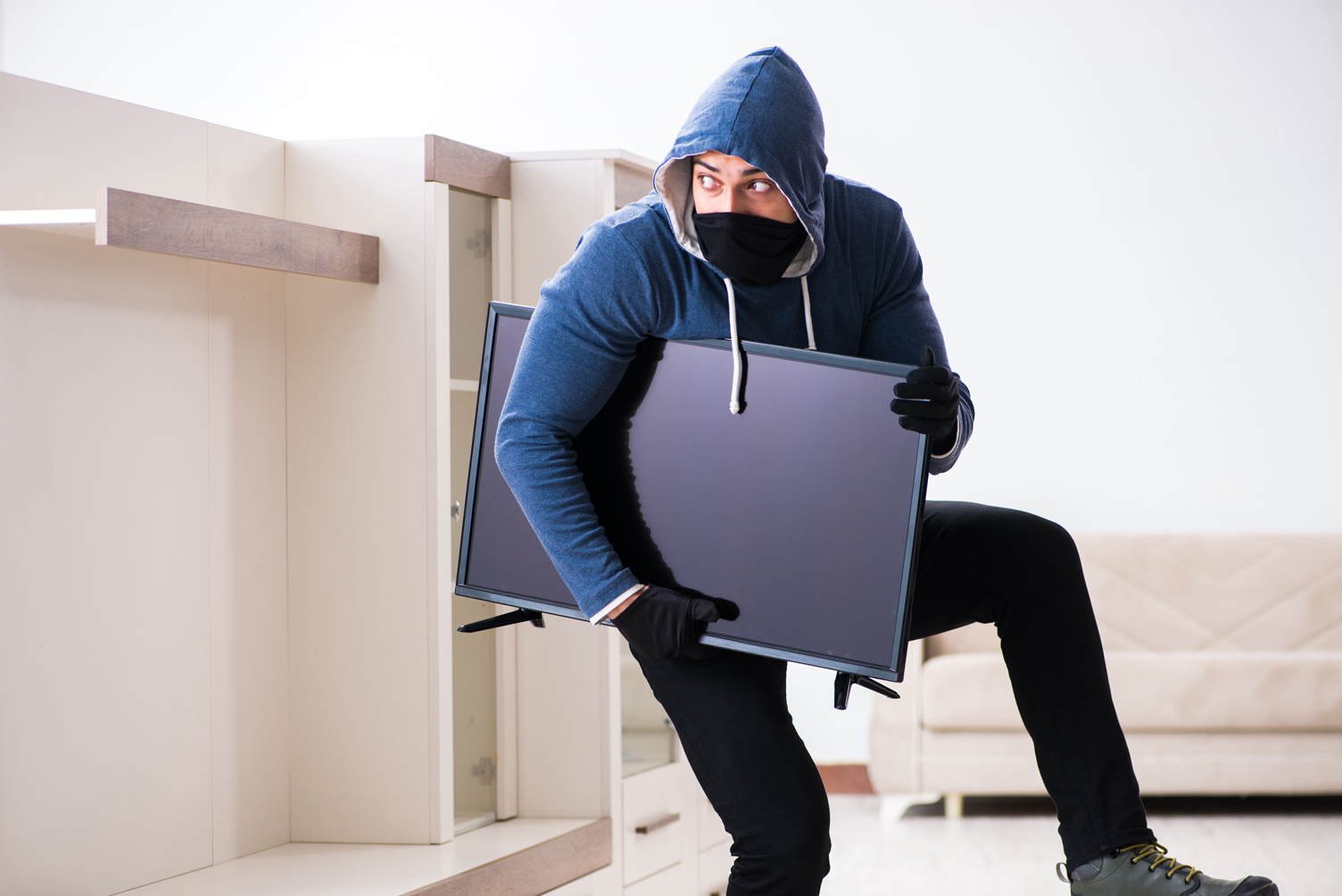If you or a loved one find yourselves in a difficult situation, we understand the urgency and stress that comes with it. At Angels Bail Bonds, we specialize in providing the support and assistance needed to secure bail for possession of stolen property charges.
In terms of legal classifications, possession of stolen property can range from third degree to fifth degree, depending on the value and nature of the stolen item. For instance, knowingly possessing stolen property like a motor vehicle could fall under vehicle and traffic law and may be considered criminal possession of the fourth degree. On the other hand, if the stolen property is related to religious corporations law, the charges could differ. It’s crucial to understand the specific laws that apply to your case, including the owner thereof, to better navigate the complexities of the bail process.
Learn the basics about the bail process for felony possession of stolen property charges, and then contact Angels Bail Bonds today. Let us be your trusted partner in navigating the bail process for felony possession of stolen property charges. We are here to help you regain your freedom and prepare for your legal journey.
What is bail?
Bail in California refers to the amount of money or property that a defendant or their surety (a person responsible for the defendant’s appearance in court) must deposit with the court to secure the defendant’s release from custody while awaiting trial.
The purpose of bail is to ensure that the defendant appears in court for all scheduled hearings and does not flee before the trial. The amount of the bail can be determined through something called a bail schedule. This is a list that contains the bail amount recommended for each charge, and each county has a different one. (Here are some quick links if you want to know the bail schedule or felony bail amounts for Los Angeles and Orange County.)
With all that being said though, in the end, a judge can deviate from the schedule based on various factors, including the severity of the offense, the defendant’s criminal history, and whether the defendant is a flight risk. If the defendant fails to appear in court, the bail is forfeited, and a warrant may be issued for their arrest.
What are bail bonds?
When you find yourself in a situation where you can’t afford to pay for your bail, bail bonds might be the solution for you. A bail bondsman, who a bail bond company employs, will charge you a fee in exchange for providing the payment. The cost of this fee will differentiate between different states in the United States. Bail bond companies in California charge only 10% of the total bail amount to post-bond for a defendant. So, if the cost of bail is $20,000, the bondsman will charge $2,000 instead of the full amount. While this may still seem like a lot of money, it’s much more affordable than paying the entire bail amount, especially on extremely high bail amounts for some serious felonies.
Those rates can be as high as 20% for some immigration and federal charges because these rates are set by law, and all bail companies must charge the same amount. Despite the costs, using a bail bondsman can be a lifesaver for those who cannot afford to be released from custody on bail.
What happens at a bail hearing?
The amount of bail is normally set at the person’s initial court appearance, often known as the arraignment stage or pre-trial detention. A judge can either release a person on their own recognizance (OR) with a promise to appear in court at a later date or deny their OR.
If the charges are infraction offenses or even some misdemeanor offenses—such as a DUI with no accident injuries or significant property damage— the person will usually be released without bail after being arrested. More serious felony charges, like assault with a deadly weapon or even murder, will not have OR as an option and will only be released from custody on bail.
You must pay the bail amount or post a bail bond on the bail schedule. An arresting police officer might ask for a higher bail amount than what the schedule suggests.
What Factors Influence a Defendant’s Bail Amount?
The bail bond process starts when a defendant is in front of a judge to determine bail. Then several factors are put into play, including the severity of the crime, criminal history, whether the defendant is a flight risk, community ties, financial resources, their potential danger to public safety, and even mental health are considered when determining bail amount.
The bail schedule further gives guidance for all criminal charges, with the judge having some leeway in the specific amounts, as mentioned. And even if they’re allowed out on bail, the defendant might have to be placed under house arrest, be prohibited from owning any deadly weapons or placed under electronic monitoring.
Have you been charged with criminal Felony possession of stolen property PC 496?

If you’ve been charged with a criminal offense like felony possession of stolen property, you or a loved one must contact the experts at Angels Bail Bonds immediately. Our team of bail bondsmen and criminal defense lawyers provide assistance during pre-trial detention at no extra cost, including nationwide.
What is Felony Possession of Stolen Property?
The legal definition of the crime of possession of stolen property, according to section 496 of the California Penal Code, is unlawfully possessing property that has been obtained by theft or any other form of illegal means, with the knowledge that it has been stolen. This offense includes both the actual physical possession of the stolen property and the exercise of control over it, called constructive possession, such as keeping, concealing, or disposing of it. The possession must be intentional, meaning the individual must be aware, beyond a reasonable doubt, of the stolen nature of the stolen goods.
This crime can be charged as a misdemeanor or a felony, depending on the value of whatever was stolen and the defendant’s criminal history. A felony conviction is when the stolen goods came from grand theft, meaning the value exceeds $950. Anything less, or petty theft, normally leads only to a misdemeanor conviction.
Here’s the exact wording in California Penal Code 496:
(a) Every person who buys or receives any property that has been stolen or that has been obtained in any manner constituting theft or extortion, knowing the property to be so stolen or obtained, or who conceals, sells, withholds, or aids in concealing, selling, or withholding any property from the owner, knowing the property to be so stolen or obtained, shall be punished by imprisonment in a county jail for not more than one year, or imprisonment pursuant to subdivision (h) of Section 1170. However, if the value of the property does not exceed nine hundred fifty dollars ($950), the offense shall be a misdemeanor, punishable only by imprisonment in a county jail not exceeding one year, if such person has no prior convictions for an offense specified in clause (iv) of subparagraph (C) of paragraph (2) of subdivision (e) of Section 667 or for an offense requiring registration pursuant to subdivision (c) of Section 290.
Defining “receives” according to PC 496
To receive a stolen item, you have to possess or control it, which entails that you can be charged with the crime even if you don’t physically hold the item or even touch it. Two or more people can possess the property at the same time. That is what constructive possession means.
What is “stolen” in this case?
Any property that was obtained through theft crimes such as petty theft, grand theft, burglary, or robbery. That includes anything from cellphones to credit cards, debit cards, cars, identity documents, and even deadly weapons (which are cases with harsher punishments.)
Types of Felony Possession of Stolen Property Charges in California

Possession of stolen property leads to a felony conviction only if the stolen good is valued at more than $950. Otherwise, a misdemeanor conviction is applied.
Swap Meet Vendors, Junk Dealers, and Collectors
PC 496 (b) also makes it clear that swap meet vendors or any person who is dealing, collecting, or selling merchandise is also subject to these charges, even if they didn’t explicitly know the property was stolen. If the prosecution proves that they didn’t inquire enough (reasonable inquiry) about the origin of the good, they will also be charged with possession of stolen property.
(b) Every swap meet vendor, as defined in Section 21661 of the Business and Professions Code, and every person whose principal business is dealing in, or collecting, merchandise or personal property, and every agent, employee, or representative of that person, who buys or receives any property of a value in excess of nine hundred fifty dollars ($950) that has been stolen or obtained in any manner constituting theft or extortion, under circumstances that should cause the person, agent, employee, or representative to make reasonable inquiry to ascertain that the person from whom the property was bought or received had the legal right to sell or deliver it, without making a reasonable inquiry, shall be punished by imprisonment in a county jail for not more than one year, or imprisonment pursuant to subdivision (h) of Section 1170.
Every swap meet vendor, as defined in Section 21661 of the Business and Professions Code, and every person whose principal business is dealing in, or collecting, merchandise or personal property, and every agent, employee, or representative of that person, who buys or receives any property of a value of nine hundred fifty dollars ($950) or less that has been stolen or obtained in any manner constituting theft or extortion, under circumstances that should cause the person, agent, employee, or representative to make reasonable inquiry to ascertain that the person from whom the property was bought or received had the legal right to sell or deliver it, without making a reasonable inquiry, shall be guilty of a misdemeanor.
Penalties in Felony Possession of Stolen Property Cases
As stated above, only property valued at over $950 will lead to a felony conviction. Otherwise, it’s charged as a misdemeanor.
However, if the value of the property does not exceed nine hundred fifty dollars ($950), the offense shall be a misdemeanor, punishable only by imprisonment in a county jail not exceeding one year, if such person has no prior convictions for an offense specified in clause (iv) of subparagraph (C) of paragraph (2) of subdivision (e) of Section 667 or for an offense requiring registration pursuant to subdivision (c) of Section 290
A felony conviction can lead to probation, a maximum prison sentence of up to three years in county jail, or a fine of $10,000.
It is worth noting that you can only be convicted of either receiving stolen property or stealing it in the first place, but not both.
Having possession of stolen goods can also make you subject to a civil lawsuit by the rightful owner of the property, on top of the other harsh penalties. This might involve paying many times the damage or the worth of the stolen property or goods, plus fees and the cost of suing you.
Average Bail for Felony Possession of Stolen Property
Felony possession of stolen property in the California Penal Code is PC 496, and initial bail is set on the schedule at $20,000 to $50,000, although this varies throughout Southern California, with some, like Orange County, charging $20,000 for petty theft alone but less for embezzlement, for example.
You Need An Experienced Bail Bond Agent That Specializes In Felony Possession Of Stolen Property Defense

The bail bond process for a felony possession of stolen property charge is serious and without expert help at your side, as the standard bail for felony possession of stolen property is $20,000 to $50,000. Nonetheless, a bail bond company and a criminal defense attorney can aid you during this difficult time and help you and your loved one obtain that money.
Legal Defense Against Felony Possession of Stolen Property
In defending their client against charges of possession of stolen property, a criminal defense attorney could argue that the prosecution has failed to establish evidence that, beyond a reasonable doubt, their client had knowledge of the stolen nature of the property. Knowledge is one of the key elements of this crime so this is a good strategy that a skilled attorney could go with. This defense could be supported by pointing out that the client may have obtained the property through a legitimate transaction without any knowledge of its stolen status. The attorney may investigate the circumstances surrounding the acquisition of the property, looking for any evidence of lack of intent or knowledge, such as a bill of sale or a witness who can testify to the client’s innocence.
A defense attorney might also explore the possibility that the client was merely in possession of the property temporarily or unknowingly. They could argue that someone else had control over the property, and the client was not aware of its stolen nature or had no intention of permanently possessing it. The defense may present evidence to show that the client had no motive or reason to possess stolen property, such as a lack of criminal history or a legitimate explanation for their possession, such as borrowing or leasing the property. By challenging the prosecution’s evidence and establishing a lack of knowledge or intent on the part of their client, the defense attorney aims to create reasonable doubt in the minds of the jurors.
Free Consultation & Case Review
Do you know someone who has been arrested for felony possession of stolen property? Look no further because we are here to help. At Angel Bail Bonds, we work with experienced bail bondsmen and criminal defense attorneys to be your best option, even in cases where you need bail for theft or felony possession of stolen property. We offer flexible payment plans and affordable rates to make the process more manageable for you and your loved ones. If you have any questions about how bail laws and the bail bond process work or if you need assistance helping a loved one in Los Angeles, Orange County, or anywhere else in California, don’t hesitate to call us today.




